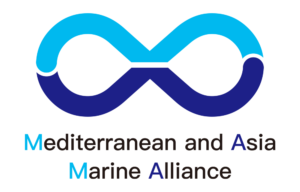Japan to Release Contaminated Fukushima Plant Water into Pacific – CY Huang Opinion
The Japanese government announced on April 13 that it expects to start releasing 1.23 million tons of nuclear contaminated water from the Fukushima Daiichi nuclear power plant into the sea two years from now. The announcement was met with serious protests and representations from neighboring countries, including China, South Korea, and North Korea. The Japan Fishery Association has also protested strongly against the government, especially in the Fukushima area. The fishery industry had just finished its trial run in preparation for the official restart after the 311 nuclear accident 10 years ago.
Experts say that the nuclear contaminated water will affect the surrounding waters of Taiwan in about 1.5 years after it is releasing along with the ocean currents. The Taiwanese Atomic Energy Council, the Fisheries Agency, the Council of Agriculture, and the National Academy of Marine Research have also proposed countermeasures, and increasing the number of marine radiation background detection points, and setting up early warning systems. They will also strengthen the sampling of fishery products and
even mayfly creatures, the content of radioactive substances in the fish’s body.The recent major news shows that countries have to consider the balance between environmental conservation and people’s welfare while pursuing economic development and policy implementation. The referendum issues in Taiwan in August this year, such as the algae reef argument, the operation of the nuclear power plant, and the import of American pigs, are all interrelated. Still, the government has not made any positive statements or proposed solutions to these issues.
With the awakening of environmental protection awareness and public awareness and the increase of participation in public affairs, the government should pay more attention to communication and public relations with the public beforehand in policy promotion, rather than mending the fold after problems are encountered. Civil society organizations can serve as a bridge between the government and the public by organizing briefings to provide more in-depth and detailed communication on policy issues. MAMA can assist the government in communicating with the public in the promotion of ocean-related policies and issues.

